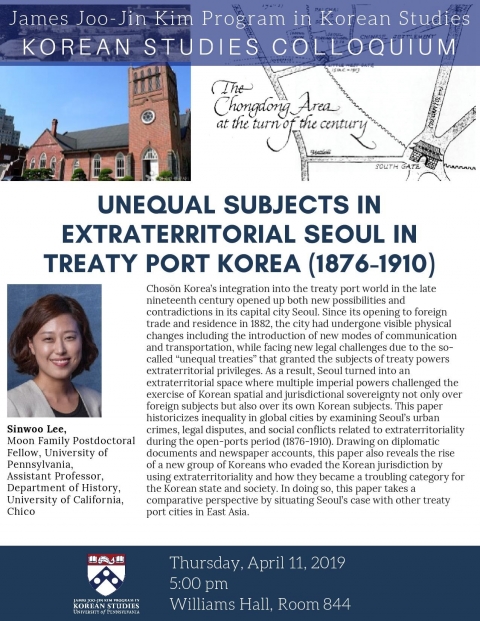
Korean Studies Colloquium
Williams Hall 844
Chosŏn Korea’s integration into the treaty port world in the late nineteenth century opened up both new possibilities and contradictions in its capital city Seoul. Since its opening to foreign trade and residence in 1882, the city had undergone visible physical changes including the introduction of new modes of communication and transportation, while facing new legal challenges due to the so-called “unequal treaties” that granted the subjects of treaty powers extraterritorial privileges. As a result, Seoul turned into an extraterritorial space where multiple imperial powers challenged the exercise of Korean spatial and jurisdictional sovereignty not only over foreign subjects but also over its own Korean subjects. This paper historicizes inequality in global cities by examining Seoul’s urban crimes, legal disputes, and social conflicts related to extraterritoriality during the open-ports period (1876-1910). Drawing on diplomatic documents and newspaper accounts, this paper also reveals the rise of a new group of Koreans who evaded the Korean jurisdiction by using extraterritoriality and how they became a troubling category for the Korean state and society. In doing so, this paper takes a comparative perspective by situating Seoul’s case with other treaty port cities in East Asia.
 James Joo-Jin Kim Center for Korean Studies
James Joo-Jin Kim Center for Korean Studies